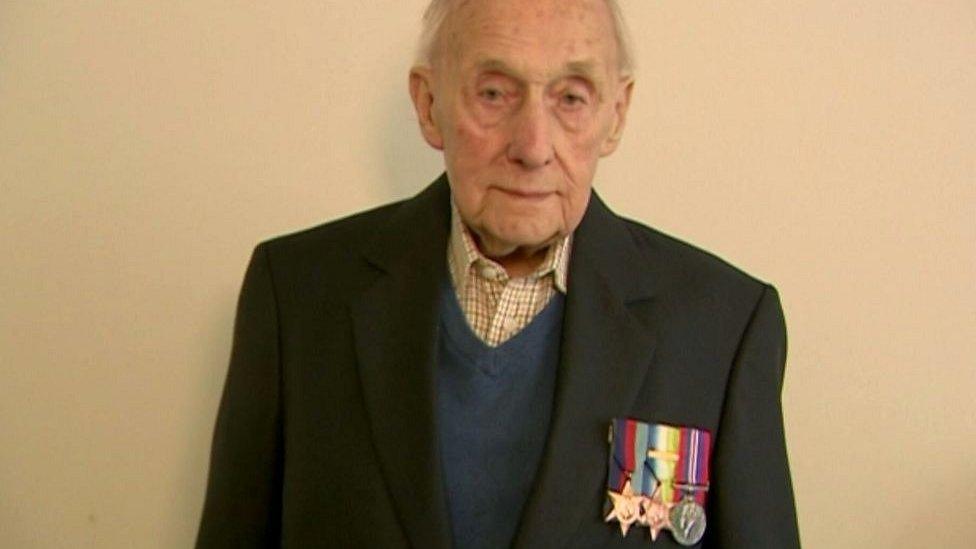'We are D-Day Dodgers - but we were busy fighting'
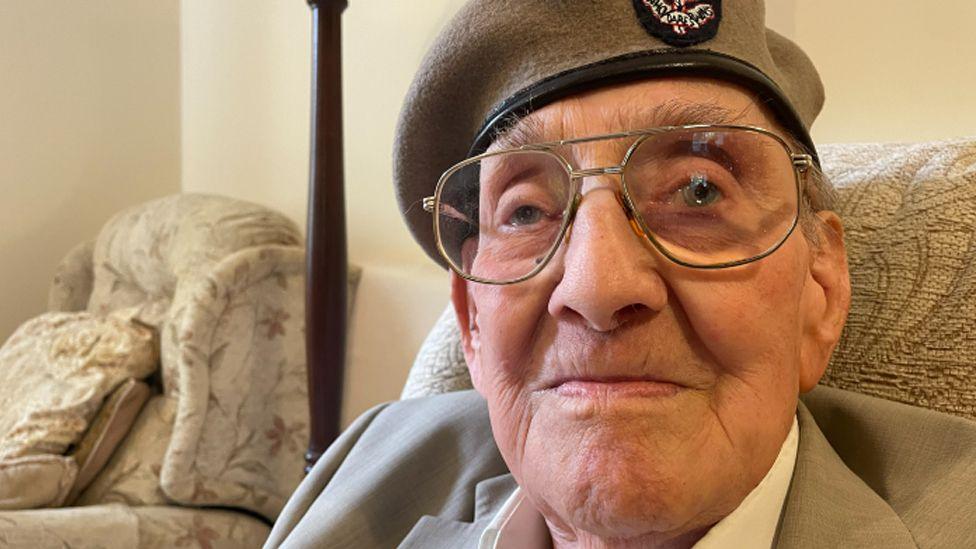
Matt MacKinnon Pattison said for 80-odd years children still thought D-Day was "the beginning and the end the war"
- Published
As the nation prepares to mark the 80th anniversary of the D-Day landings, a World War Two veteran has shared his memories of the battles that raged hundreds of miles away from the beaches of Normandy.
Now aged 99, Matt MacKinnon Pattison was among hundreds of thousands of Allied soldiers who fought Germans in Italy in the spring of 1944.
Sometimes remembered as the "D-Day Dodgers", in reference to their role away from Normandy, men in Italy faced brutal conditions as they battled to take Monte Cassino and dislodge enemy soldiers.
"We came back from Italy having flogged ourselves to pieces, nervous wrecks, and people say 'where were you on D-Day?'" said Matt, from Penrith, Cumbria.
"We just say we were busy bloody well fighting."
British Prime Minister Winston Churchill thought of Italy as the "soft underbelly" of Nazi-dominated Europe, but the campaign there proved difficult and costly.
With perhaps typical military irony, the men in Italy adopted the "D-Day Dodgers" moniker, even creating a song to the tune of Lili Marleen, a famous wartime melody.
"We are the D-Day Dodgers in sunny Italy," rang the chorus.
But this was no sojourn in the sun and the Allied forces knew it.
Enemy soldiers were dug in on defensive lines across the country, and at Monte Cassino it took four separate attacks from US, British, Polish and Commonwealth forces to destroy and take the hilltop monastery.
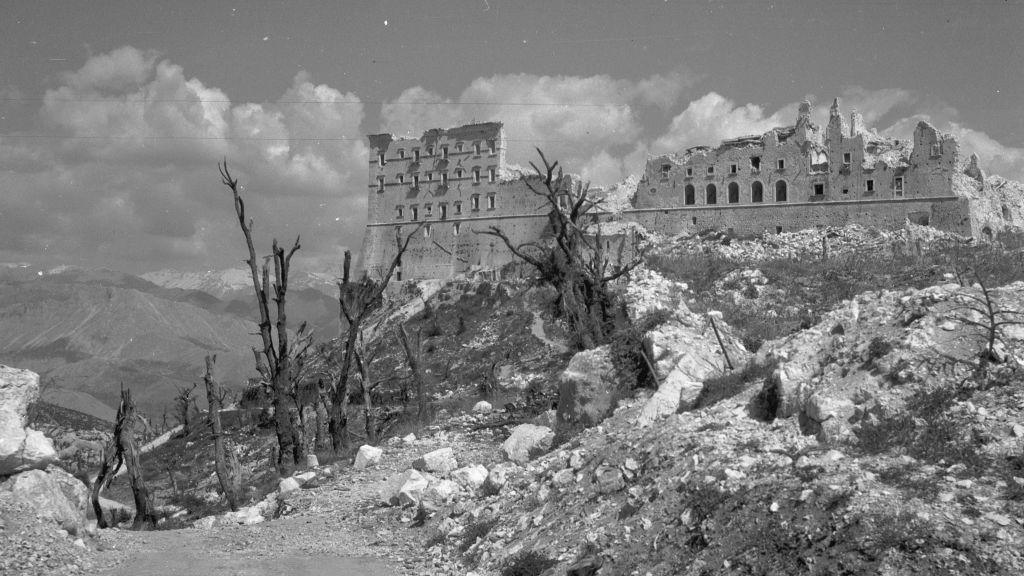
The Abbey of Monte Cassino in ruins after Allied bombing
Matt still has razor-sharp memories of the battles he fought, and the comrades he lost.
He fled agricultural service in Kilmarnock as a teenager to get to Glasgow to enlist as an infantryman before ending up "right in the forefront" of the battle for Monte Cassino.
Advancing up the slopes amid the fog of deadly artillery bomb blasts and the continual crackle of gunfire, the soldier saw many of his comrades fall.
But, he said, there was no time to be frightened.
"You don’t look upon it as bravery, you just look at it as part of your life," he told the BBC.
"When the officers told you to advance, that was what you had to do.
"Every battle is the same. You get pounded to death, whether it was Normandy, Burma or anywhere."
Matt was recruited for the SAS after being injured and taken to a Naples hospital to recover.
From 100 candidates, he was just one of 10 that made it. He was dropped behind enemy lines near Genoa, tasked with finding Italian dictator Mussolini who by then had been captured by partisans.
Once the war was over, he was sent to Germany as part of the War Crimes Unit to find Nazi suspects who had executed captured members of the SAS.
There, he said, he saw a broken nation, but people "just like us".
'My friend died smiling'
Eight decades on, he can clearly recall the claustrophobic horror of war, from German soldiers playing dead to entice Allied soldiers into shooting range, to landmines and enormous loss.
"I lost a lot of my mates, especially one called Ginger," he said.
"And when he died he was sitting in a trench with his head down. There was a smile on his face."
"Still a smile on his face that marked the place where he and his maker met.
"And that was Ginger. He was a good lad."
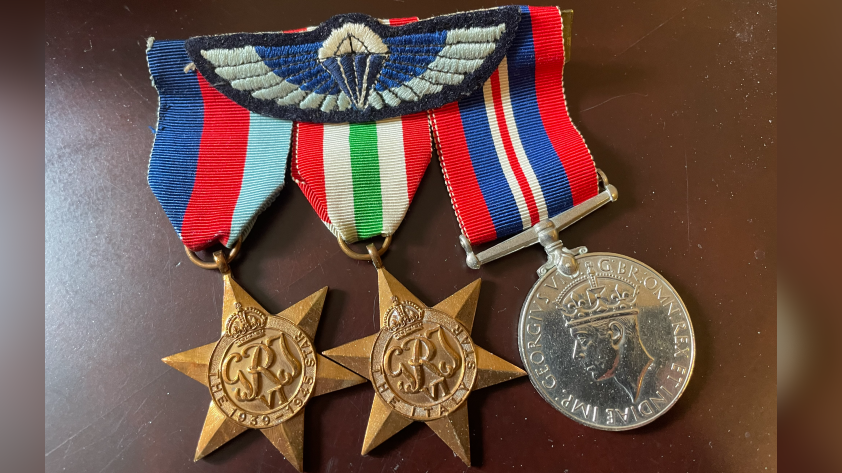
WW2 medals awarded to Matt MacKinnon Pattison
Dodging D-Day was no pass, and so many thousands paid the ultimate price in Italy.
As the final verse of the D-Day Dodgers song makes plain:
"Look around the hillsides,
Through the mist and rain
See the scattered crosses
Some that bear no name.
Heartbreak and toil and suffering gone.
The lads beneath, they slumber on.
They are the D-Day Dodgers
Who’ll stay in Italy."
In his flat, Matt still has his SAS beret, his medals and his memories.
He also has his nation’s thanks.
Follow BBC Cumbria on X (formerly Twitter), external, Facebook, external and Instagram, external. Send your story ideas to northeastandcumbria@bbc.co.uk.
- Published17 May 2024
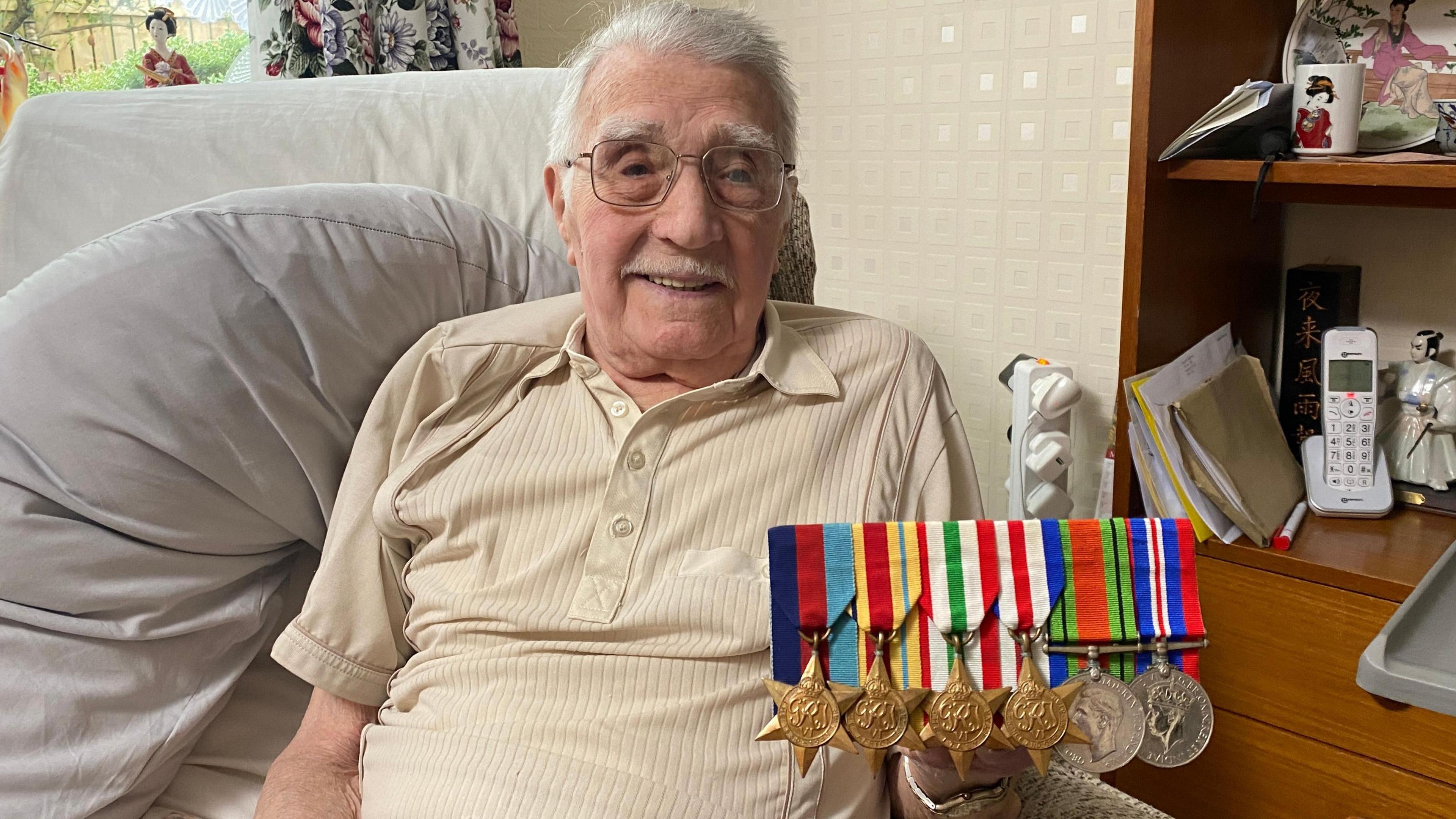
- Published6 June 2019
